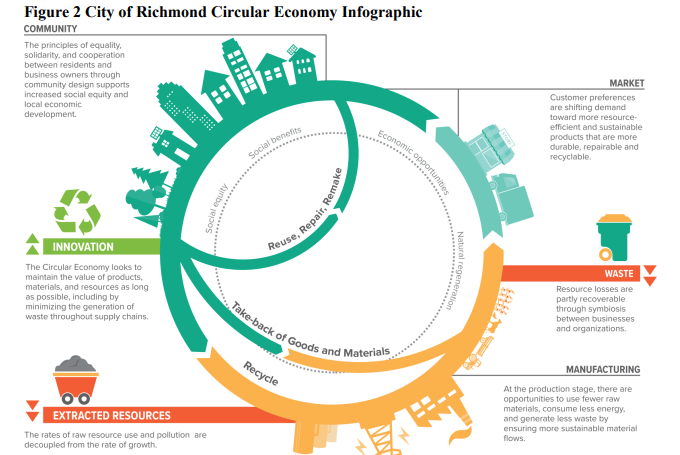The City of Richmond has been chosen among other Canadian local governments to join a national "circular economy" initiative focusing on reducing waste.
Richmond is one of fifteen cities across the country that has been selected for the Canadian Circular Cities and Regions Initiatives, a year-long peer-to-peer network with the aim to share best practices on implementing circular economy strategies and policies in communities.
A circular economy system is about retaining the value of products during their lifecycle and improving performance at their end-of-life.
The Ellen MacArthur Foundation defines a circular economy as one that looks past the “take-make-waste extractive industrial” model, redefines growth and focuses on positive benefits for society as a whole.
“This initiative provides a tremendous opportunity for Richmond to continue being a municipal leader in the transition to a circular economy,” said Mayor Malcolm Brodie.
“The city’s vision for the circular economy is to maximize the value of resources, by design, through responsible consumption; minimizing waste’ and reimagining how resources flow in a sustainable, equitable, low-carbon economy.”
According to the City of Richmond, its goal is to develop an “easy-to-understand” circular economy roadmap for the community as its goal with the help of Canadian and international leaders and practitioners.
Examples of circular economy commitment and leadership that the city has achieved in the past include organizing Canada’s first vendor-focused Circular Economy Engagement workshops, a pilot project in collaboration with Lafarge Canada to use reclaimed asphalt pavement, promoted food waste reduction through campaigns and more.
The Canadian Circular Cities and Regions Initiatives was developed by the National Zero Waste Council, the Federation of Canadian Municipalities Green Municipal Fund, the Recycling Council of Alberta and RECYC-QUÉBEC.
-With files from Maria Rantanen



